Lost in the digital transformation matrix
Amidst profound digital transformation, the labor market is placing entirely new demands on human resources. While many parents and students remain hesitant about vocational training, concerned about training quality and career advancement prospects, Vietnam's vocational education system is quietly repositioning itself; no longer a "second-hand solution," but a proactive, practical, and relevant path for the times. With a reformed legal framework, updated training programs, and a strong business linkage model, vocational education is affirming its pioneering role in training high-quality human resources for the digital economy .
Ms. Tran Le Hoang Anh (37 years old, residing in Ho Chi Minh City) shared: “ The world talks about artificial intelligence (AI), big data, and the Internet of Things (IoT), but my son prefers vocational school because the training time is short, allowing him to start earning money sooner. I'm always worried whether vocational schools will get stuck with outdated curricula, only teaching basic manual labor skills? Will my son be equipped with enough skills to compete in a labor market that increasingly demands digital skills?”
Sharing the same concerns, Mr. Nguyen Van Quyen (43 years old, residing in Dong Nai), whose son is studying at a vocational education institution in Ho Chi Minh City, said: “Universities are given greater autonomy, so will college and vocational school diplomas be considered less important? Is the path to further education truly wide open, or is it just a narrow door? Although vocational schools always promise high employment rates, I worry that after graduation my son will only be a skilled worker, with few opportunities for advancement, low salaries, and easily replaced by machines.”
In response to these concerns, Ms. Thai Thuy Chung, Director of the Admissions & Communications Center at iSPACE Cybersecurity College, stated: Vietnam is at a pivotal point in its reform process. Vocational education cannot and should not be outside this cycle. This is both an opportunity and a challenge, and vocational education is seizing this opportunity to rise strongly. According to Ms. Chung, the situation of vocational education being "overshadowed" can be completely eliminated thanks to a solid legal foundation.
The draft amendment to the Law on Vocational Education is being finalized with many revolutionary new points. Specifically, the draft stipulates that universities providing undergraduate training in health-related fields, teacher training, specialized arts fields, etc., or qualified businesses, may participate in training at the intermediate and college levels.
This will create a healthy competitive environment, promote quality and diversify choices for learners, thereby expanding the training ecosystem. In addition, the recognition of vocational secondary school diplomas as equivalent to high school diplomas has broken the "dead end" in education.
Apprentices have a complete lifelong learning path, seamlessly transitioning to higher levels of education without obstacles. Vocational education institutions are also granted greater autonomy in curriculum design, international cooperation, and especially in implementing short-term skills certifications (micro-credentials), enabling them to respond quickly to the needs of the labor market.
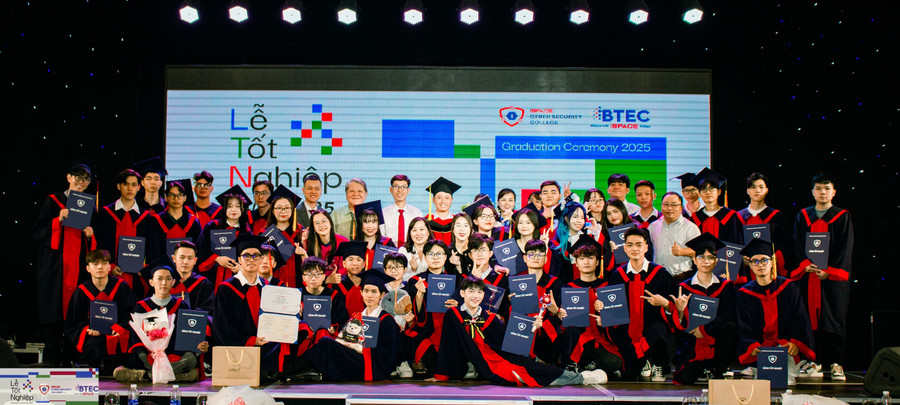
The training program is undergoing transformation.
Ms. Thai Thuy Chung asserted that the notion that vocational education only trains "workers" is completely outdated. Following the trend of developed countries such as Germany, Switzerland, and Australia, modern vocational education combines specialized skills training with liberal education, aiming to create well-rounded citizens.
In the digital age, vocational school training programs have undergone a spectacular transformation. Instead of focusing solely on traditional skills, schools are equipping students with a comprehensive set of digital competencies, including: foundational and advanced digital skills (from office software and software administration to programming, cybersecurity, and AI); essential soft skills such as critical thinking, problem-solving, teamwork, and cross-cultural communication; and lifelong learning skills, the ability to self-learn online, and adapt to new technologies.
Ms. Le Thi Bich Thao, Vice Principal of Dai Viet Saigon College, emphasized: "The school always prioritizes training that is closely linked to practical experience. The school collaborates with hundreds of businesses to develop programs, continuously reviewing and updating the latest technologies and skills needed by the labor market."
Students are exposed to AI, IoT, digital design, and more while still in school. This is why students never fall behind. Statistics show that over 85% of vocational education graduates find employment within six months of graduation; for "hot" fields like Information Technology, Cybersecurity, and Industrial Electronics, this rate exceeds 95%. Many graduates not only find good jobs but also successfully start their own businesses and are recruited by international companies. Employment is no longer a worry, but a significant strength and source of pride for vocational education.
Furthermore, with the guiding principle of "preventing students from dropping out due to financial difficulties," in 2025, Dai Viet Saigon College will continue to implement flexible, friendly, and practical tuition fee and financial support policies. Students with good academic performance will receive valuable scholarships to cover their living expenses. The college is committed to not increasing tuition fees throughout the course of study.
In particular, the school has a student loan fund of 15 billion VND, supporting students with 0% interest loans. After graduation, if students cannot repay immediately, they can commit to a specific repayment period with the school.
“The dual training model, with 70-80% of the time dedicated to practical training at businesses, is becoming the standard. Students not only learn theory but also get to 'eat, learn, and work together' with experts, even receiving a salary during their internship, ensuring they are job-ready immediately after graduation. Vocational education is not a last resort, but a smart choice for a sustainable future,” Ms. Thao affirmed.
According to the Ho Chi Minh City Department of Education and Training, by 2025, the local vocational education system will have 380 units, including: 62 colleges, 60 vocational secondary schools, 77 vocational education centers, and 181 other vocational education establishments.
Source: https://giaoducthoidai.vn/giao-duc-nghe-nghiep-thoi-40-thay-doi-de-but-pha-post742831.html


![[Photo] Closing Ceremony of the 10th Session of the 15th National Assembly](/_next/image?url=https%3A%2F%2Fvphoto.vietnam.vn%2Fthumb%2F1200x675%2Fvietnam%2Fresource%2FIMAGE%2F2025%2F12%2F11%2F1765448959967_image-1437-jpg.webp&w=3840&q=75)
![[Photo] Prime Minister Pham Minh Chinh holds a phone call with the CEO of Russia's Rosatom Corporation.](/_next/image?url=https%3A%2F%2Fvphoto.vietnam.vn%2Fthumb%2F1200x675%2Fvietnam%2Fresource%2FIMAGE%2F2025%2F12%2F11%2F1765464552365_dsc-5295-jpg.webp&w=3840&q=75)






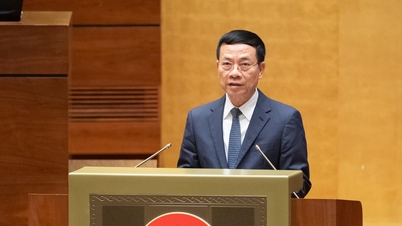

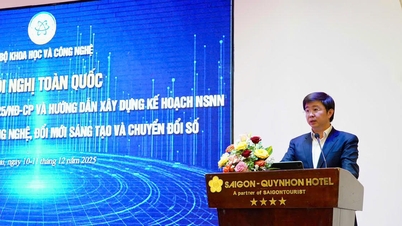












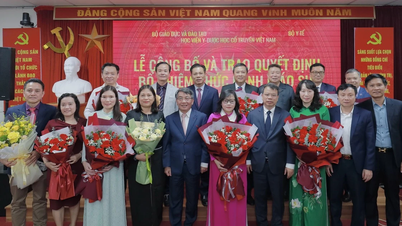
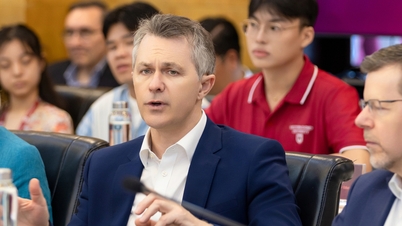

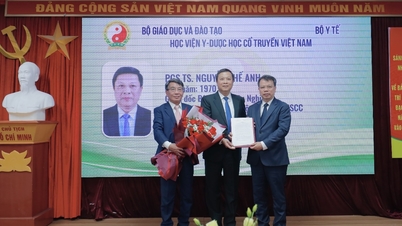





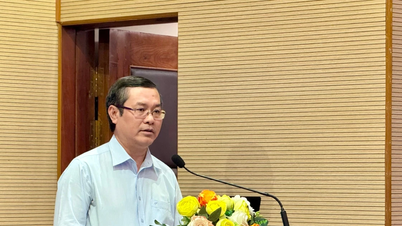
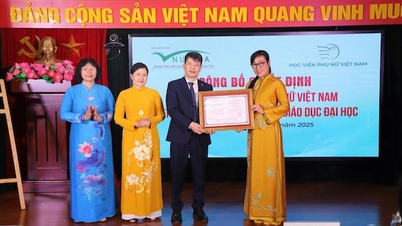


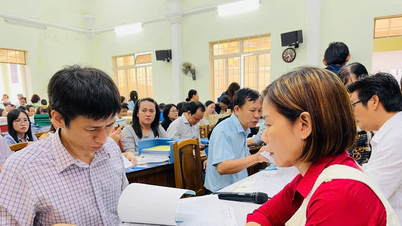
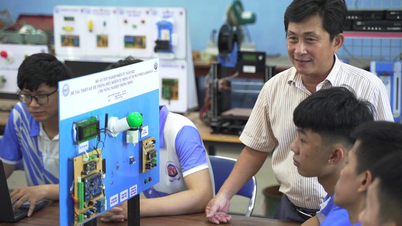























![[OFFICIAL] MISA GROUP ANNOUNCES ITS PIONEERING BRAND POSITIONING IN BUILDING AGENTIC AI FOR BUSINESSES, HOUSEHOLDS, AND THE GOVERNMENT](https://vphoto.vietnam.vn/thumb/402x226/vietnam/resource/IMAGE/2025/12/11/1765444754256_agentic-ai_postfb-scaled.png)






























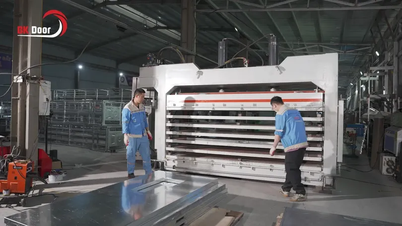



















Comment (0)